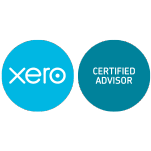
The idea of retiring at a ripe old age free from financial pressures is a pleasant vision for many. As the benefits of saving for retirement are recognized globally, it is becoming more common for individuals to migrate to New Zealand with superannuation funds from their previous country of residence.
Generally, once an individual is deemed a New Zealand resident for tax purposes, all of their worldwide income is subject to New Zealand’s tax rules – including their foreign superannuation funds. The tax rules relating to foreign superannuation funds are known for their complexity, which has resulted in a lack of awareness and confusion regarding how the rules apply and ultimately non-compliance and inconsistency.
Under the current rules, several different regimes could apply to foreign superannuation funds. For example, if a person’s fund has been invested into an entity that is deemed to be a company for tax purposes, there could be an annual tax liability under the Foreign Investment Fund (FIF) rules, which broadly taxes their ‘share’ in the company, and any withdrawal from the fund could be deemed to be a taxable dividend.
In recognition of the problem, the Government released an Officials’ Issues Paper in July 2012 that proposed several options, and draft legislation have now been introduced to apply from 1 April 2014. The new rules are intended to apply to people who contribute to a foreign superannuation fund while working overseas and other specifically defined “foreign superannuation schemes”. The following summarises key elements of the draft legislation:
- The FIF rules will no longer apply to foreign superannuation schemes.
- The value of a person’s foreign superannuation fund will no longer be taxed on an annual basis. Instead, lump-sum amounts will either be wholly or partially taxed when withdrawn or transferred to a New Zealand or Australian scheme, using one of two calculation options. The amount of tax will depend on how long a taxpayer has been a New Zealand resident.
- Withdrawals in the first four years after a person first becomes a New Zealand resident will not be taxable.
- Receipt of a pension or foreign social security payment will be taxed as many have always been – at the individual marginal tax rate.
Note: withdrawals from Australian superannuation funds will generally be exempt from tax under the New Zealand / Australia Double Tax Agreement.
To avoid disadvantaging some taxpayers during the transition to the new rules, the Government has proposed that:
- Foreign superannuation funds transferred into KiwiSaver schemes are allowed a withdrawal from the scheme to pay their tax bill.
- Those who complied with the FIF rules before the introduction of the bill (20 May 2013) may choose to continue to use the FIF rules.
- Those who made a lump-sum withdrawal or a transfer to another superannuation scheme between 1 January 2000 and 31 March 2014, but did not comply with their tax obligations at the time, will have an option to pay tax on only 15% of the lump sum amount.
The proposed new rules appear simpler to understand so there should be a greater level of compliance.
All information in this newsletter is to the best of the authors’ knowledge true and accurate. No liability is assumed by the authors, or publishers, for any losses suffered by any person relying directly or indirectly upon this newsletter. It is recommended that clients should consult a senior representative of the firm before acting upon this information.


